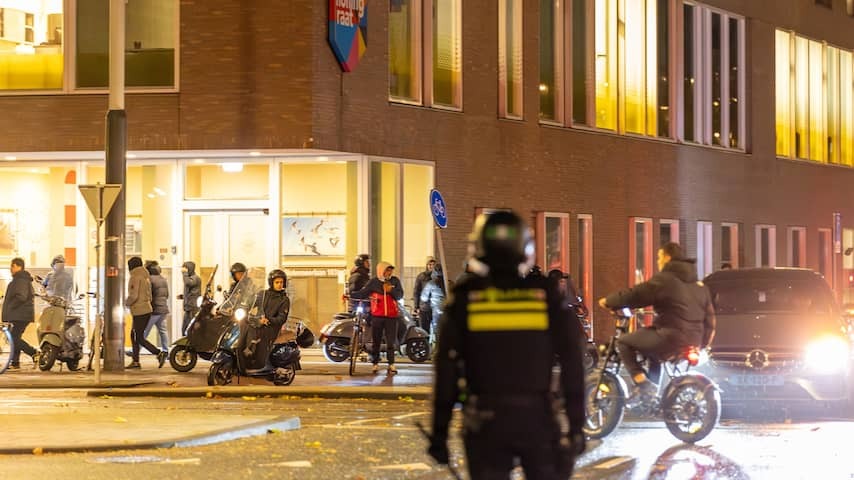
The police did not make any mistakes in November during the disturbances after the match between Ajax and Maccabi Tel Aviv, concludes the Inspectorate of Justice and Security. The riots were too fast and unpredictable for a completely good approach.
Supporters of both clubs misbehaved. After the match, there were alleged hit-and-run actions by perpetrators of violence, who were mainly targeting Jewish fans of Maccabi. The violent incidents led to much unrest, anger and indignation both in the Netherlands and abroad.
The police acted well during the disturbances, concludes the Inspectorate of Justice and Security in a report that will be published on Monday. According to the researchers, there was a clear plan, in which the cooperation with the municipality and the Public Prosecution Service went well. Yet, the officers could not always get the unrest under control quickly enough.
There were more than twelve hundred officers on duty, including special teams. They used drones, horses and water cannons. But some rioters worked cleverly together, struck quickly and used scooters and taxis. As a result, police teams were sometimes surprised and it was difficult to keep an overview, the report said.
The police worked together with other services. A lot of information was collected in advance via social media, among other things. But messages on social media also caused rapid group formation and tensions in the streets. As a result, the police often had no choice but to react quickly instead of preventing the problems in advance.
Role of NCTV was not clear enough
The inspection says that the police had to be flexible, but that it was impossible to act correctly immediately in every unexpected situation. The disturbances developed too quickly to handle everything according to the book. However, the inspection believes that the police acted well and professionally.
The inspection also investigated the role of the National Coordinator for Counterterrorism and Security (NCTV). There is also no criticism of the NCTV’s approach, but the role of the organization was not always entirely clear to the municipality and police. The inspection recommends better communication about the tasks of the NCTV.
For the future, the inspection advises to continue investing in better information gathering for the police and flexible ways to intervene in new problems. The NCTV should also explain more clearly to other parties involved what it is exactly for.